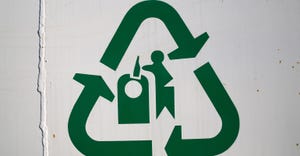Unlike the past when waste companies used paper tickets for routing and service issues, onboard computing solutions are able to be more flexible and comprehensive in serving customers.
Fleet management is key in the waste and recycling industry. From route optimization and scheduling to vehicle maintenance and driver habits, the industry now relies on many different types of technology to track and monitor its fleets. Onboard computers help waste companies improve efficiency in collections operations and, when combined with other technologies, they can create a “smart fleet” solution.
NEXCOM International, founded in New Taipei City, Taiwan, but with North American headquarters in Fremont, Calif., is one company that offers in-vehicle computing solutions, specifically the VTC 1010 for the waste industry.
The VTC 1010 addresses vehicle tracking and monitoring, real-time voice and data communication, in-vehicle infotainment and digital signage applications. Its goal is to “improve waste collection operation efficiency,” says Khang Pham, marketing manager for NEXCOM.
NEXCOM’s touch PC is mounted on waste trucks inside cabins and collects information that is transmitted to the company’s back office, according to Pham. The computers integrate WWAN and WLAN communication and real-time satellite positioning to deliver an always-on, always-visible connection. Combined with the ability to further integrate with vehicle sensors such as fuel and door, in-vehicle computers can provide up-to-date status information and location to service centers, allowing operators to identify and respond to events remotely.
“(It records) time stamp, real-time location, drive pattern, engine data, idling time, accelerating/braking, fuel consumption, maintenance interval and tire pressure,” he says. “(Onboard computers) are a must. Operators get real-time fleet management data to constantly improve operation efficiency.”
Montreal, Canada-based Fleetmind also offers the waste industry two onboard computing devices—Fleetlink Mobile Lite and GD4010 Smart Display by General Dynamics. Both come equipped with WasteApp—a software designed for residential or commercial waste management activities. It is used in connection with back office operations and dispatch to record all standard waste management activities.
“FleetMind’s FleetLink Back-office software solutions work with FleetLink Mobile hardware products to improve operations, increase profitability, provide complete fleet visibility and help ensure a problem-free customer experience,” says Martin Demers, vice president of Fleetmind Solutions. “They include solutions for managing communications, interfacing to third-party software, analyzing data, managing and optimizing routes, and tracking individual trucks.”
Dawn McCormick, director of communications and community relations for Waste Management of Florida, says the company uses its own onboard tablets and software to monitor its fleets.
“We have onboard tablets for all of our vehicles in Florida. Drivers receive routing information via the online tablet and can respond to service issues,” she says. “(Drivers) also are able to take a photo if a Dumpster is overloaded so we can discuss larger options with the customer.”
In addition to improving efficiency, onboard computers also provide real-time information to drivers and dispatchers about a truck’s load-weight, route status, service completion, vehicular telemetry, driver activities and more, and further manage a wide range of inputs from a vehicle’s on-board systems (such as cameras, scales, RFID readers, tire pressure and fuel monitoring). The result is a truck with total visibility into route progress, greater driver accountability, improved customer service, optimized safety and vastly improved fuel efficiency.
“(Onboard computers allows for) total visibility—getting a bird’s eye view into all operations. This is known as a ‘smart truck’ solution—Onboard computing solutions that capture and store electronic control module and other vehicular data to provide accurate performance reporting and real-time alerts,” he says.
Unlike the past when waste companies used paper tickets for routing and service issues, OBC solutions are able to be more flexible and comprehensive in serving customers, according to McCormick.
“We are able to provide superior service to customers to be more efficient,” she says. “Waste Management is at the forefront of the industry and always looking for new technology to better serve our customers.”
According to Demers, thousands of vehicles across North America use FleetMind to enhance productivity, increase profits, improve customer satisfaction, reduce emissions and reduce operating expenses.
“‘Smart fleet’ systems now incorporate a model for connected data sharing between the back-office, trucks and drivers to enable route optimization, full management of container assets, safety and more efficient, sustainable operations,” says Demers.
About the Author(s)
You May Also Like


